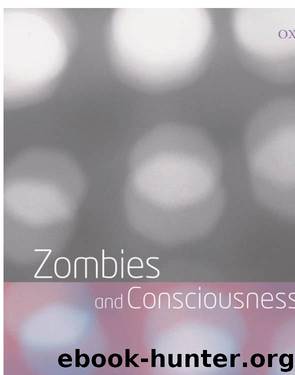0199285489.pdf by Unknown

Author:Unknown
Language: eng
Format: epub
ISBN: 0199285489
Published: 2008-06-05T12:41:45+00:00
8.3
C O N C E P T P O S S E S S I O N I S N OT A L L - O R - N OT H I N G
Cats, babies, and many much less sophisticated organisms perceive, learn about,
and represent their environments. To be accessible for use the information they
acquire must be organized, if only in rudimentary ways. That organization
involves, among other things, their tending to group different items together, so
that they can treat them similarly. And that starts to seem like conceptualization,
at least in a rudimentary sense, although, as the example of the bees suggests, even
very complex systems of classification may fail to involve genuine interpretation,
assessment, and decision-making by the system as a whole.
However, Evans is not alone in refusing to allow any system to count as having
concepts unless it also has complex and demanding other abilities. John Campbell
claims that concept possession is ‘defined by’ a certain ‘core set of abilities’ which among other things includes self-consciousness in a strong sense.² José Bermúdez
requires possession of language: according to his ‘Priority Principle’, ‘Conceptual
abilities are constitutively linked with linguistic abilities in such a way that con-
ceptual abilities cannot be possessed by non-linguistic creatures’ (1998: 42).
Those certainly appear to be strong claims. But it turns out that these philo-
sophers are mostly legislating for the use of ‘concept’, ‘belief ’, and related words rather than making substantive claims about the limits of thought. They find it
helpful for their purposes to impose strong conditions on concept possession and
believing, without denying that languageless creatures can have something like
beliefs and concepts.
Bermúdez, for example, appeals persuasively to animal studies to support
the view that non-linguistic creatures may be aware of themselves. Self-aware
psychological subjects will be ‘aware of themselves as perceivers, as agents, and as
having reactive psychological states’ (247). He brings evidence from develop-
mental psychology in support of his view that non-linguistic infants acquire
this sort of awareness between 9 and 10 months. However, because he insists
that genuine beliefs must have ‘conceptual’ contents, he refuses to admit that lan-
guageless creatures also have beliefs: they have only ‘proto-beliefs’. His Priority
Principle would do powerful work indeed if we had good reason to accept it. His
main justification seems to be that having genuine beliefs and concepts requires
the ability to justify inferences; and he cannot see how a creature without
language could do that. He leads up to this point via consideration of empirical
evidence which seems on the face of it to show that languageless infants have the
² J. Campbell (1994: 3). John McDowell says, ‘Creatures without conceptual capacities [sc. in the demanding sense he favours] lack self-consciousness and . . . experience of objective reality’ (1994: 114).
Susan Hurley says that ‘if the information that a given object has a certain property is conceptualized, . . .
it has a structure that enables the person . . . [to] quantify and make inferences that depend on such decompositional structure and context-freedom’ (1997: 207).
De-sophisticating the Framework
123
elements of the concept of an object (roughly: of something bounded, more or
less impenetrable, and spatiotemporally continuous).
Download
This site does not store any files on its server. We only index and link to content provided by other sites. Please contact the content providers to delete copyright contents if any and email us, we'll remove relevant links or contents immediately.
Kathy Andrews Collection by Kathy Andrews(11831)
The remains of the day by Kazuo Ishiguro(8998)
Spare by Prince Harry The Duke of Sussex(5194)
Paper Towns by Green John(5188)
The Body: A Guide for Occupants by Bill Bryson(5096)
Industrial Automation from Scratch: A hands-on guide to using sensors, actuators, PLCs, HMIs, and SCADA to automate industrial processes by Olushola Akande(5061)
Machine Learning at Scale with H2O by Gregory Keys | David Whiting(4312)
Be in a Treehouse by Pete Nelson(4051)
Never by Ken Follett(3954)
Harry Potter and the Goblet Of Fire by J.K. Rowling(3856)
Goodbye Paradise(3809)
The Remains of the Day by Kazuo Ishiguro(3409)
Into Thin Air by Jon Krakauer(3398)
Fairy Tale by Stephen King(3393)
The Cellar by Natasha Preston(3342)
The Genius of Japanese Carpentry by Azby Brown(3308)
120 Days of Sodom by Marquis de Sade(3273)
Reminders of Him: A Novel by Colleen Hoover(3116)
Drawing Shortcuts: Developing Quick Drawing Skills Using Today's Technology by Leggitt Jim(3080)
